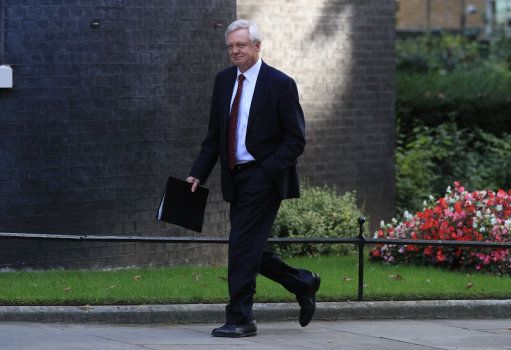Brexit means Brexit, which is ambiguous enough in a substantive sense. And, caught up in the debate about what a UK exit from the European Union might look like, few people have bothered to spend time considering what its procedural implications might be. Yet these will be considerable, and have the potential to challenge, if not fundamentally reshape, the basic building blocks of the British state.
Parliament is very much in the spotlight following the recent High Court ruling. It will, at a minimum, have to approve a Bill to allow the triggering of Article 50. Yet I remain sceptical as to how much real influence this will translate into. It is hard to see the House of Commons attempting to prevent Brexit. Equally, however, it is not obvious how it might aspire to shape its nature.
Certainly, parliamentarians want to do just that. Apart from insisting on regular reports back from the negotiations, it seems likely that MPs will also expect a vote on whatever deal is finally agreed. Yet the nature of the Article 50 timetable means that this will confront them with a choice between whatever deal the Prime Minister secures and no deal at all. Hardly a recipe for a parliament-inspired Brexit deal.
Far more of a challenge for the House will be not shaping Brexit but managing it. The Great Repeal Bill—the oxymoronic title given to the act of incorporating all EU law into national law—will require a level of legislative activity that the House of Commons is simply incapable of. While Select Committees squabble over who gets to do which Brexit report, surely more thought should be given to the respective weight of primary and secondary legislation in this process? Too much of the former, and parliament sinks under the weight. An excessive reliance on the latter implies a lack of proper scrutiny and a danger of badly drafted law.
While parliament struggles with such issues, the civil service faces enormous challenges of its own. As if the creation and staffing of two new Ministries—for Exiting the EU and for International Trade—were not enough, the former is tasked with perhaps the most challenging task the British bureaucracy has taken on. While negotiating with our partners, it must ensure that the views of all those line ministries affected by specific issues are taken into account.
Almost overlooked, given the focus on leaving, is the need to continue to make Britain’s case in the Council until we do. Anecdotal reports from Brussels indicate that the UK is already taking its eye off the ball in key negotiations that will result in new legislation bound for our statute book.
And finally, of course, there is the constitutional settlement itself. The referendum revealed deep divisions in British society, some of which coincided with national boundaries. The fact that voters in Scotland did not vote to leave the EU is a central plank of Nicola’s Sturgeon’s demands for a separate, Scottish interest to be taken into account in negotiations with our EU partners. This makes perfect sense, not least as, once Brexit happens, important areas of public policy—including agriculture and fisheries—previously dealt with in Brussels by Whitehall, will be handled by the devolved authorities. More profoundly still, of course, Brexit could yet prove to be the trigger for a second Scottish independence referendum. Whether one takes place, and whatever its outcome, our constitutional system is in for a buffeting in the years to come.
These are merely selective thoughts on what promises to be a complex process. It could be a lengthy one, too, given that it is hard to see how a long-term trade deal can be struck in the two-year window provided for the Article 50 “divorce” talks. And there is no reason why our institutions should not rise to challenge and successfully negotiate the Brexit minefield. Mine is not a caution of despair. It is simply caution. Thinking through the problems that await is surely better than being surprised by them? And, heaven, forbid, it might allow for the development of a credible strategy.
Anand Menon is Director of UK in a Changing Europe. For more on the procedural challenges thrown up by Brexit, see the report "Brexit and Beyond: How the United Kingdom might Leave the European Union"

On the 17th of November, Prospect launched Brexit Britain: the trade challenge. A publication designed to act as a guide for parliamentarians, officials and businesses with a stake in the UK’s changing relationship with the world following Brexit. To see the complete contents of the report please click here.
For speaker and partnership opportunities, please contact david.tl@prospect-magazine.co.uk.You can also receive the full “Brexit Britain: the trade challenge” report as a fully designed PDF document. To do so, simply enter your email below. You’ll receive your copy completely free—within minutes.
[prosform fields="email,forename,surname" signupcode="Trade" countrycode="GB" redirect="brexit-britain-the-trade-challenge-is-yours"]












